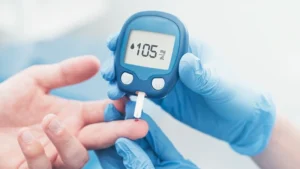A heart transplant is a remarkable medical procedure that can save the lives of individuals suffering from severe heart conditions. As medical science advances, the success rates of heart transplants continue to improve, offering hope to patients and their families. However, while the medical aspects of heart transplants are widely discussed, the financial implications often remain a topic less explored. In this article, we delve into the critical question: “How much is a heart transplant cost?”
Understanding the financial aspects of this life-saving procedure is crucial, as it sheds light on the challenges faced by patients and provides insights into the affordability and accessibility of heart transplants. Join us as we navigate the intricacies of heart transplant expenses and the potential avenues of support for those in need.
The Heart Transplant Process
A heart transplant is a complex and life-saving medical procedure that involves replacing a diseased or failing heart with a healthy donor heart.
It is typically recommended for patients who have end-stage heart failure, severe heart muscle damage, or congenital heart defects that cannot be effectively treated with other medical interventions.
The goal of the heart transplant is to improve the patient’s quality of life and increase their chances of survival.

Evaluation and Selection of Transplant Candidates
Before a heart transplant can take place, potential candidates undergo a thorough evaluation to determine their suitability for the procedure.
This evaluation includes medical tests, imaging scans, and consultations with a multidisciplinary team of healthcare professionals, such as cardiologists, transplant surgeons, psychologists, and social workers.
The team assesses the patient’s overall health, medical history, and psychological well-being to ensure they can withstand the rigors of the surgery and post-transplant care.
The Waiting List and Organ Availability
Once a patient is deemed a suitable candidate for a heart transplant, they are placed on a waiting list maintained by regional and national transplant centers.
Organ allocation is prioritized based on factors such as medical urgency, blood type, body size, and time spent on the waiting list. Unfortunately, the demand for donor hearts far exceeds the supply, leading to a challenging waiting period for many transplant candidates.
Success Rates and Risks
Heart transplants have significantly improved survival rates over the years, thanks to advancements in surgical techniques and immunosuppressive medications. However, like any major surgery, heart transplants carry inherent risks.
Some potential risks include organ rejection, infection, bleeding, and complications related to immunosuppressive drugs. Transplant recipients need to follow strict post-operative care and take medications to prevent rejection and infection.

Factors Affecting Heart Transplant Costs
Pre-transplant Evaluations and Medical Tests
Before a heart transplant, candidates undergo a series of medical evaluations and tests to assess their overall health and suitability for the procedure.
These tests may include blood tests, imaging scans, electrocardiograms (ECGs), stress tests, and consultations with various specialists.
The costs associated with these evaluations can vary depending on the complexity and the medical facility.
Read More: Kidney Disease and Heart Failure
Donor Organ Acquisition and Transportation Expenses
Obtaining a suitable donor heart involves additional costs. This includes the assessment of potential organ donors, surgical retrieval of the heart, and transportation to the transplant center.
The transportation process must be swift to ensure the viability of the organ, adding to the overall expenses.
Surgeon and Medical Team Fees
The heart transplant procedure requires a team of highly skilled medical professionals, including transplant surgeons, anesthesiologists, nurses, and support staff.
Each member of the team incurs fees for their specialized services, contributing to the total cost of the transplant.
Hospitalization Costs and Post-operative Care
The hospital stay for a heart transplant is typically an extended period, involving intensive monitoring and care.
The expenses include the use of specialized facilities, accommodation, nursing care, medications, and other medical supplies.
Immunosuppressive Medications and Long-term Follow-up Expenses
After the heart transplant, patients must take immunosuppressive medications for the rest of their lives to prevent organ rejection.
These medications can be costly, and their long-term usage adds to the financial burden. Additionally, frequent follow-up visits and medical tests are necessary to monitor the patient’s progress and adjust the medication dosage, further impacting the overall expenses.
How Much is a Heart Transplant Cost?
Understanding the breakdown of costs associated with a heart transplant can provide valuable insights into the financial implications of this life-saving procedure.
Pre-transplant Costs
Evaluation and Medical Tests
- The pre-transplant evaluation process involves a range of medical tests and consultations with specialists to assess the patient’s eligibility for the transplant. These tests may include blood work, imaging scans, electrocardiograms (ECGs), and stress tests. The total cost of pre-transplant evaluations can vary depending on the complexity of the tests and the medical facility.

Transplant Surgery Costs
Donor Organ Acquisition and Transportation
- The costs associated with obtaining a suitable donor heart include the assessment of potential donors, surgical retrieval of the heart, and transportation to the transplant center. These expenses can be substantial, given the urgency and precision required in the organ procurement process.
Read More: How Long Does a Heart Transplant Last?
Surgeon and Medical Team Fees
- Heart transplant surgery involves a team of highly skilled medical professionals, including transplant surgeons, anesthesiologists, nurses, and support staff. Each member of the team incurs fees for their specialized services during the procedure.
Hospitalization Expenses
- The hospital stay after the transplant is usually an extended period that involves intensive monitoring and care. The expenses include the use of specialized facilities, accommodation, nursing care, medications, and other medical supplies.
Post-transplant Costs
Immunosuppressive Medications
- Following the heart transplant, patients are required to take lifelong immunosuppressive medications to prevent organ rejection. The cost of these medications can be significant and may vary depending on the specific drugs prescribed and the patient’s response to treatment.
Long-term Follow-up Care
- Regular follow-up visits and medical tests are essential for monitoring the patient’s progress and adjusting medication dosages as needed. These ongoing medical visits contribute to the long-term costs associated with heart transplants.
Additional Expenses
Rehabilitation and Therapy
- Post-transplant rehabilitation and therapy sessions may be necessary to aid the patient’s recovery and improve their overall quality of life. The costs of these sessions can add to the overall expenses of the transplant.
Travel and Accommodation
- For patients who need to travel to a transplant center away from their home, travel, and accommodation expenses for themselves and their caregivers may also be part of the cost considerations.
Read More: Why Does My Nose Run When I Exercise?
Financial Assistance and Insurance Coverage
Exploring the available financial assistance options and understanding insurance coverage can be crucial for patients facing the substantial costs of a heart transplant.
Financial Assistance Programs
Government Initiatives
- Some countries have government-funded programs or grants that provide financial aid to patients in need of life-saving procedures, including heart transplants. These initiatives aim to alleviate the burden of medical expenses for eligible individuals.
Non-Profit Organizations
- Numerous non-profit organizations are dedicated to supporting transplant patients by offering financial assistance, fundraising support, and resources for navigating the financial challenges of the transplant process.
Hospital and Transplant Center Programs
- Certain hospitals and transplant centers have their own financial assistance programs to help patients with transplant-related expenses. These programs may be based on the patient’s financial need and eligibility criteria.
Private Health Insurance
Coverage for Heart Transplants
- Many private health insurance plans provide coverage for heart transplants. However, the extent of coverage can vary widely depending on the insurance policy and the specific procedures and services included in the coverage.
Pre-Existing Condition Clauses
- Some insurance plans may have pre-existing condition clauses that could affect coverage for heart transplants if the patient had heart-related issues before obtaining the insurance policy.
Out-of-Pocket Expenses
- Even with insurance coverage, heart transplant patients may still have out-of-pocket expenses, such as deductibles, copayments, and coinsurance. Understanding these costs is essential for financial planning.
Navigating Insurance and Financial Assistance
Case Managers and Social Workers
- Many transplant centers have case managers and social workers who can guide patients through the process of seeking financial assistance and understanding insurance coverage. They can help patients identify appropriate resources and complete necessary paperwork.
Fundraising and Crowdfunding
- Fundraising initiatives, including online crowdfunding campaigns, can be effective ways for heart transplant patients to raise funds for their medical expenses. Friends, family, and the broader community can contribute to these campaigns to support the patient’s journey.
Conclusion
The cost of a heart transplant is a significant financial consideration for patients and their families. Understanding the factors that affect heart transplant costs, including pre-transplant evaluations, surgery expenses, post-transplant care, and ongoing medications, is crucial for financial planning.
While the expenses associated with heart transplants can be substantial, financial assistance programs offered by governments, non-profit organizations, and transplant centers can help alleviate the burden.
Having private health insurance coverage is essential, but patients must also be aware of potential out-of-pocket expenses and pre-existing condition clauses that may affect coverage.
Seeking guidance from case managers and social workers at transplant centers can be beneficial in navigating insurance and financial assistance options.
In addition to financial considerations, heart transplant candidates must also be aware of the rigorous evaluation process, waiting list challenges, and potential risks associated with the procedure.
Despite the challenges, heart transplants offer hope for improved quality of life and increased survival rates for those suffering from end-stage heart failure.
FAQs
1. How much does a heart transplant cost on average?
The average cost of a heart transplant can vary widely depending on factors such as the patient’s location, the transplant center, and the specific medical services required. On average, heart transplant costs can range from $700,000 to over $1 million in the United States.
2. Does health insurance cover heart transplants?
Many private health insurance plans provide coverage for heart transplants. However, the extent of coverage can vary based on the insurance policy, and patients may still have out-of-pocket expenses.
3. Are there government programs that offer financial assistance for heart transplants?
Yes, some countries have government-funded programs or grants that provide financial aid to patients in need of life-saving procedures, including heart transplants.
4. Can heart transplant candidates seek support from non-profit organizations?
Yes, numerous non-profit organizations are dedicated to supporting transplant patients by offering financial assistance, fundraising support, and resources for navigating the financial challenges of the transplant process.
5. How long is the waiting list for a heart transplant?
The waiting list for a heart transplant can vary depending on factors such as the patient’s blood type, body size, medical urgency, and the availability of donor organs. In some cases, patients may wait for several months or even years.
6. What are the potential risks of a heart transplant?
The heart transplant procedure carries inherent risks, including organ rejection, infection, bleeding, and complications related to immunosuppressive medications. Patients must undergo lifelong medical monitoring and follow-up care to mitigate these risks.
7. Can heart transplant recipients live a normal life after the procedure?
With successful heart transplant and proper post-operative care, many recipients can lead a relatively normal life, enjoying improved quality of life and increased longevity.
8. Are there alternative treatments to heart transplants?
While heart transplants are the most effective treatment for end-stage heart failure, research and innovation in artificial heart technologies and regenerative medicine offer promising alternative approaches in the future.
9. How can patients raise funds for heart transplants?
Patients can raise funds for heart transplants through various means, including fundraising initiatives, crowdfunding campaigns, and seeking financial assistance from non-profit organizations and government programs.
Medical References
- Russo, M. J., Chen, J. M., Sorabella, R. A., Martens, T. P., Garrido, M., Davies, R. R., … & Naka, Y. (2010). The effect of body mass index on survival following heart transplantation: do outcomes support consensus guidelines?. The Journal of Heart and Lung Transplantation, 29(2), 161-169.
- Lund, L. H., Edwards, L. B., Kucheryavaya, A. Y., Benden, C., Christie, J. D., Dipchand, A. I., … & Stehlik, J. (2015). The Registry of the International Society for Heart and Lung Transplantation: Thirty-second Official Adult Heart Transplantation Report-2015; Focus Theme: Early Graft Failure. The Journal of Heart and Lung Transplantation, 34(10), 1244-1254.
- Colvin-Adams, M., Smith, J. M., Heubner, B. M., Skeans, M. A., Edwards, L. B., Waller, C. D., … & Miller, L. W. (2017). OPTN/SRTR 2016 Annual Data Report: Heart. American Journal of Transplantation, 17(Suppl 1), 286-356.
- Kheradvar, A., Groves, E. M., Falahatpisheh, A., Kwon, O., Quinonez, M., & Nguyen, T. (2018). Artificial hearts: current development and future directions. Journal of Thoracic Disease, 10(Suppl 25), S2962-S2974.
- McDiarmid, S. V., & McManus, B. M. (2019). Pediatric heart transplantation: Past, present, and future. Journal of Heart and Lung Transplantation, 38(3), 230-239.
- Tallaj, J. A., Kirklin, J. K., Brown, R. N., Armstrong, W., Drakos, S. G., Palanichamy, N., … & Rayburn, B. K. (2021). Heart transplant in patients with a continuous-flow left ventricular assist device: What’s in a word?. The Journal of Heart and Lung Transplantation, 40(2), 103-112.



